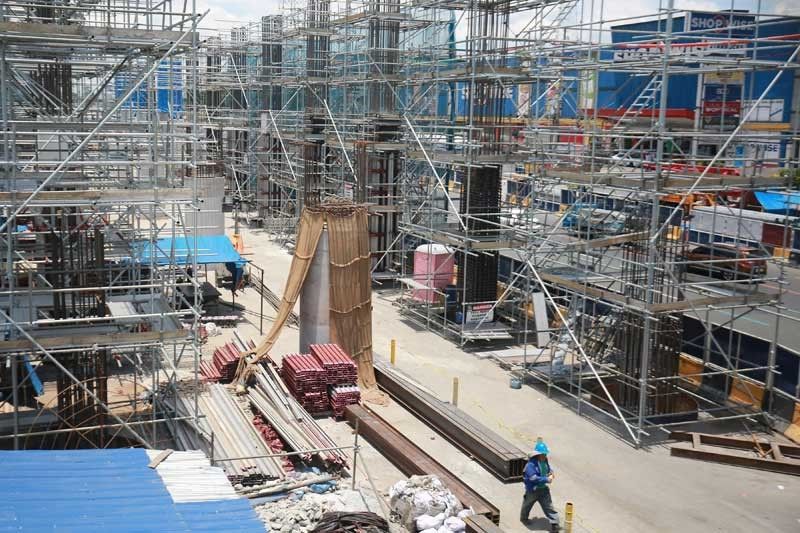Infrastructure-to-GDP ratio likely eased to 6.2% in 2018

MANILA, Philippines — Infrastructure spending likely reached 6.2 percent of gross domestic product in 2018, according to the Department of Budget and Management (DBM).
In his weekly press briefing, Budget Secretary Benjamin Diokno said the share of the country’s infrastructure spending to GDP, on an obligation basis, may have reached 6.2 percent in 2018, slightly below the 6.3 percent infrastructure-to-GDP level recorded the previous year.
This is also a bit lower than the 6.3 percent infrastructure-to-GDP rate programmed by the government for 2018 on an obligation basis.
Nevertheless, Diokno said this level of infrastructure spending is almost triple the average of two percent of GDP recorded from 1986 to 2016.
“Compared to the initial two years of every president when he or she was still learning the ropes of the presidency, President Duterte has shown a much better job than his peers,” Diokno said.
According to the latest data from the DBM, the government spent P806.3 billion on capital outlays in the first 10 months of 2018, 42.8 percent higher than the P564.6 billion recorded in the same period the previous year.
Actual infrastructure spending as of end-October 2018 also jumped by 50.3 percent to P665.1 billion from the previous year’s level of P442.7 billion.
Diokno expressed confidence that infrastructure spending would reach 6.8 percent of GDP as programmed this year even while the government is operating on a reenacted budget in the first quarter.
“As long as the Senate and the House acts on the budget, then we’ll probably hit it. And remember, the 2018 budget was extended, there are some appropriations which have been released before but have yet to be obligated, so that will also help,” Diokno said.
Congress has failed to pass the 2019 General Appropriations Act before the end of last year, which means the government is now running on a reenacted 2018 budget. The DBM expects this situation to last in the first quarter of 2019.
Following this, President Duterte signed Joint Resolution 3, extending the validity of the funds for maintenance and other operating expenses (MOOE) and capital outlays under the 2018 national budget.
“And depending also on the speed by which we contract some of our foreign loans, then I’m optimistic we’ll hit the target (for infrastructure spending),” Diokno said.
Earlier, the budget chief warned that reenacting the budget would delay the implementation of infrastructure projects and cut government disbursements by around P44 billion if implemented in the first three months of 2019.
However, he said the government would be capable of catching up and recovering from this lag, depending on weather conditions in the latter part of the year.
One strategy, he said, is to extend working hours or to hire more workers for projects.
With a catch-up plan in place, Diokno expressed confidence that the Philippine economy would still grow by at least the lower-end of the government target.
“We’re confident that we’ll hit at least seven percent this year,” he said.
The secretary said real GDP growth is expected to accelerate with inflation expected to ease this year.
“Not many people know this, even some businessmen – they think the growth rate is nominal – it’s not nominal, it’s real. So when you say seven percent, that takes care already of inflation…Since we expect lower inflation this year, it will be easier to hit the real growth rate of seven percent,” he said.
- Latest
- Trending
























